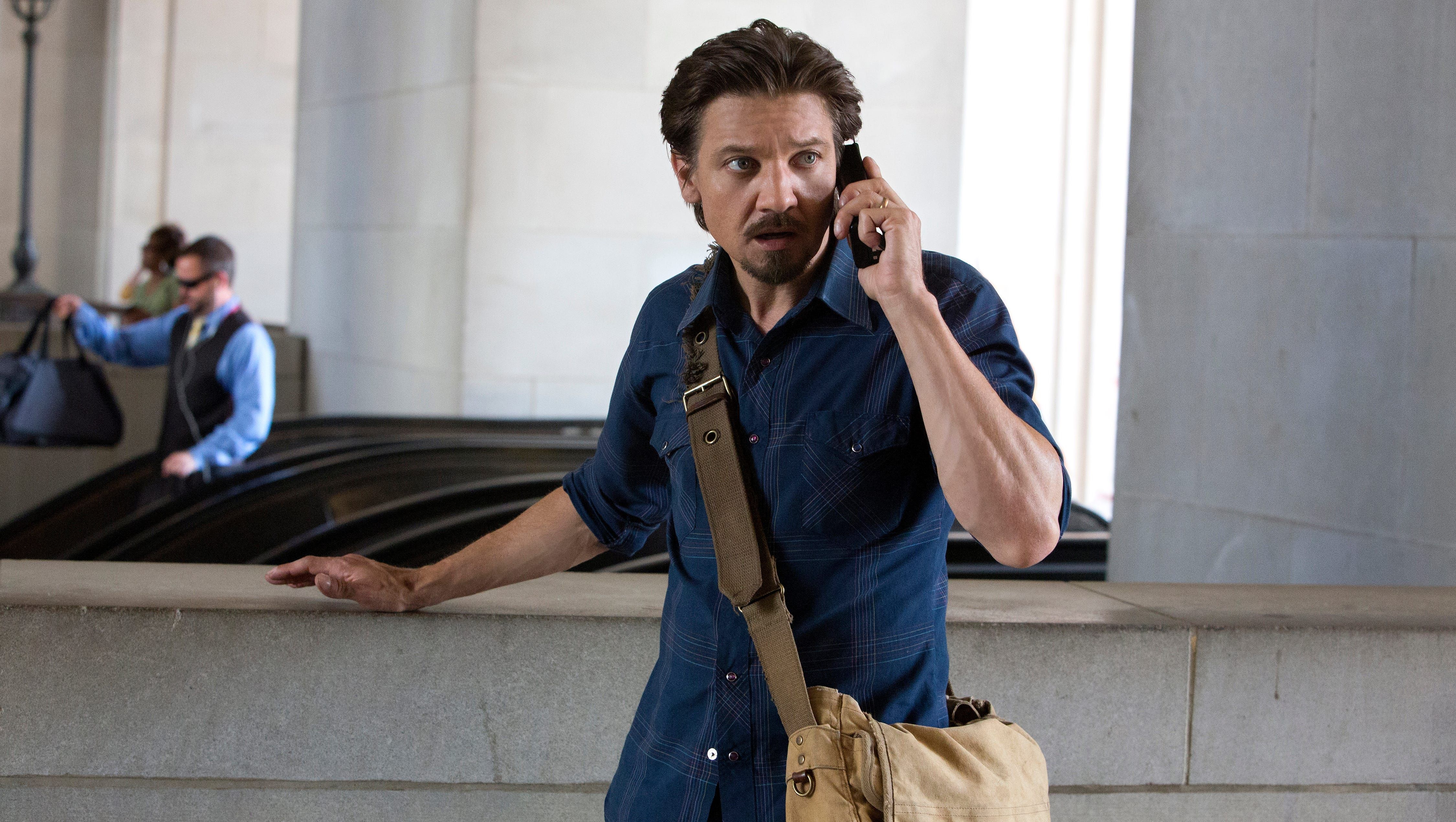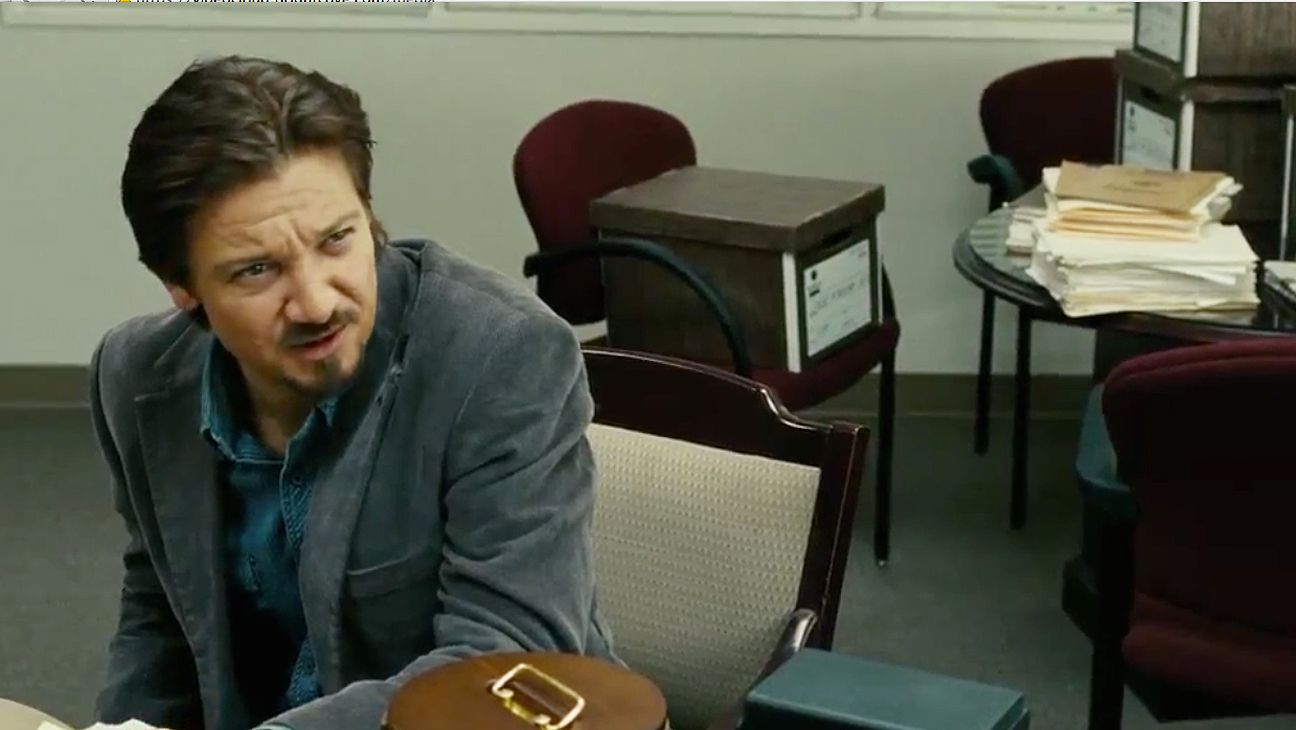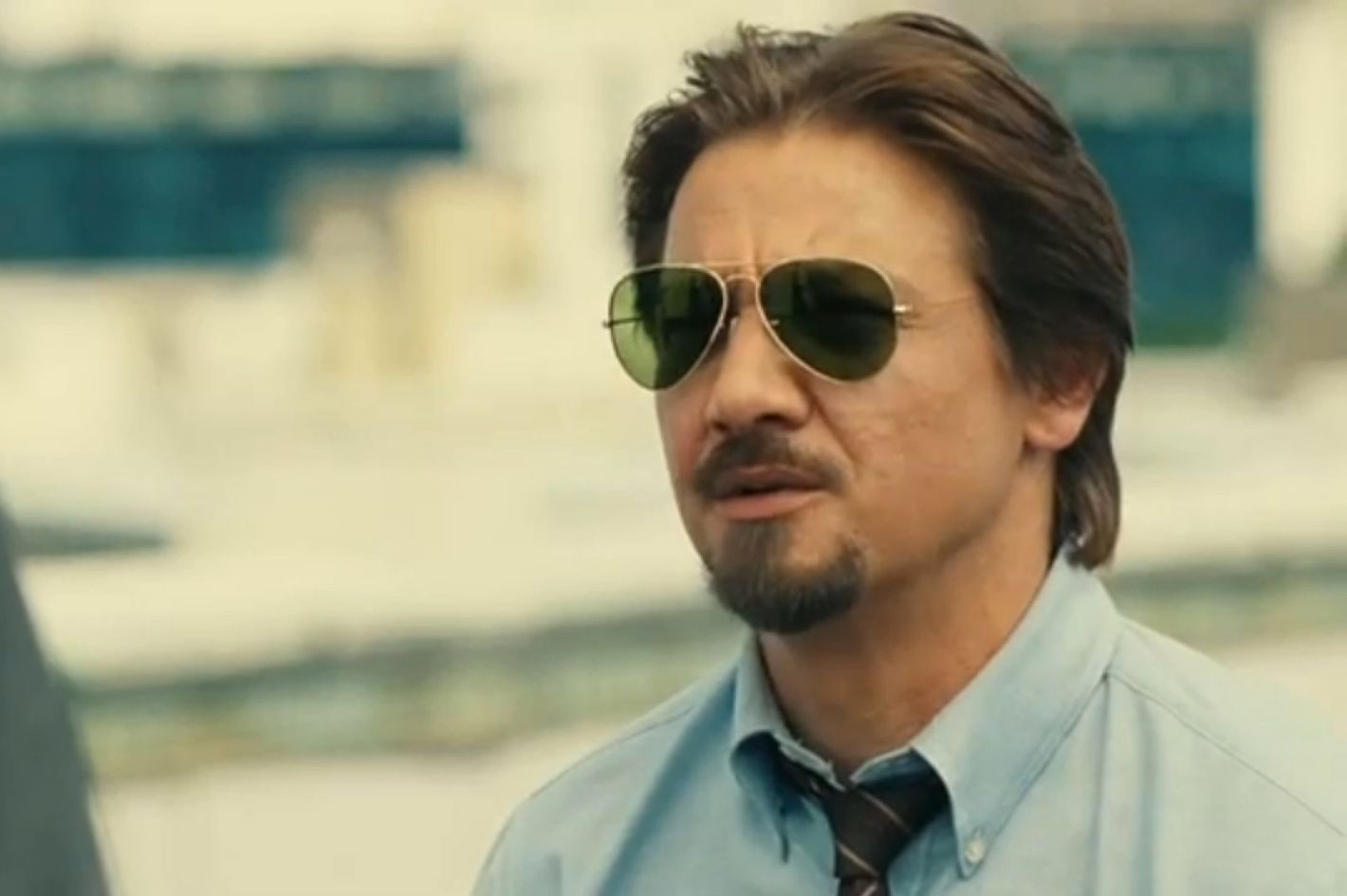Jeremy Renner’s rise to prominence has been a fascinating case study in expectations. Renner’s early career was characterized by bit parts in high profile projects, including The Assassination of Jesse James by the Coward Robert Ford and 28 Weeks Later, but when he landed a lead role in Kathryn Bigelow’s war thriller The Hurt Locker he was still largely an unknown. The Hurt Locker itself was initially thought of as a festival darling destined to succeed only within the arthouse market, but in a surprising turn of events, interest in the film was reenergized a year after its festival debut and went on to take home the Academy Award for Best Picture among other honors. Renner was now a star and seemed to be making all the right choices; he received an additional Best Supporting Actor nomination for his modern update of the rowdy “Robert De Niro in Mean Streets” type role in Ben Affleck’s The Town, landed the hotly anticipated role of Hawkeye in the then-emerging Marvel Cinematic Universe, and was seemingly promised the reigns to both the Bourne and Mission: Impossible franchises.
Renner is clearly a renowned star, but somehow it feels like he’s slightly fallen below the sky-high expectations of his two breakout performances. He never received another Oscar nomination, his Marvel role was initially the laughing stock of The Avengers, and the original stars of his two supposed franchise vehicles decided to return. What’s even more unfortunate is that some of Renner’s finest work to date resides in projects that underperformed. 2014’s Kill the Messenger is almost entirely forgotten, but it features one of the most heart-wrenching and complex performances of Renner’s entire career.
Kill the Messenger tells the true story of Gary Webb, a fiercely idealistic (yet strictly skeptical) reporter for The San Jose Mercury News who dedicates his professional career to exposing corruption within powerful institutions. Webb is experienced enough to know the limitations of a local paper (he certainly isn’t receiving any huge paychecks for his meticulous research), but he believes in the truth, and the inspiring potential that good journalism has. He’s drawn to stories that he feels are important, and only inadvertently encounters one of the biggest money laundering conspiracies in U.S. political history.
Renner characterizes Webb with an energy that isn’t dissimilar from Clint Barton; he’s simply a ground level, working-class good guy. Webb doesn’t seek fortune and any acclaim he receives is an afterthought; a gala held in his honor by the Society of Professional Journalists is later seen as a novelty within his career. It's the exact type of hero role that Renner plays so perfectly, as he’s able to shrug off the impact of his actions because to him, it’s just a day job. Similar to Barton, Webb isn’t particularly starry-eyed either, and can deliver a rightfully timed sarcastic comment in order to keep everything in perspective.
Webb is approached by an enigmatic caller who insists that she has proof of the ties between the American government and a spike in cocaine sales. It's one of many seemingly “groundbreaking” calls he receives on a daily basis, but Webb begins to believe in the story’s legitimacy when he uncovers the transcripts to a Grand Jury testimony. A simple following of the trail leads him to Oscar Danilo Blandón (Yul Vazquez), a paid informant who swears that the CIA is actively profiting off of cocaine smuggling operations in order to fund the ongoing Nicaraguan resistance movement.
There’s a refreshing lack of sensationalism within both the film itself and Renner’s performance. Webb’s realizations about what his own government is up to aren't treated as a dramatic plot twist, but a small series of clues that emerge thanks to his due diligence. Renner never plays up the moment, yet he’s able to show Webb’s increasing incredulity at the degree of the conspiracy. He feels that his discoveries make him completely on his own, and as the film tragically reveals, he is.
The key “family dinner” scenes that would feel remedial in most biopics are essential to Kill the Messenger, as Webb’s love for his family becomes an integral plot point as the events grow more extreme in nature. Like the rest of his exchanges, Webb’s flirtations with his wife Susan (Rosemary Dewitt) aren’t burdened by flowery professions of love, but they have enough simple chemistry to establish a happy marriage. Like Renner, Dewitt is more important than she may initially seem to be. Susan may start off as a standard “supportive wife” character, but she becomes the only person who believes in Webb’s story when he becomes the target of blackmail and libel.
What starts as a methodical investigative thriller becomes a nauseating suspense piece akin to the political thrillers of the 1970s such as The Parallax View and Three Days of the Condor. Renner has a lot in common with stars like Warren Beatty and Robert Redford; he seems so tactful and knowledgeable that his descent into paranoia inherently conveys dramatic weight. In Kill the Messenger, Webb faces threats from government figures that are as understated as he is; the statement “we would never threaten your family” is terrifying.
Renner’s down-to-Earth nature makes the tragedy at the heart of Kill the Messenger more heartbreaking. Its themes are more complex than “it couldn’t have happened to a nicer guy,” but it's harrowing to watch Webb’s story become silenced, his family fall under surveillance, and the members of his own profession grow to doubt him. Usually, a closing title card reveals complementary details that more or less prove the same point of the actual film, but the revelation of Webb’s death by suicide is a gut punch.
One of the tragedies of this generation of serialized filmmaking is that movie stars are less renowned than the characters they inhabit, and the Avengers leading men have frequently underperformed with their solo star vehicles. It’s particularly unfortunate in the case of Renner’s work in Kill the Messenger, as he dedicates himself fully to an important true story that’s been as sidelined as the film itself.





